Can KITTENS Eat ADULT Cat Food? Should They Always Avoid It?
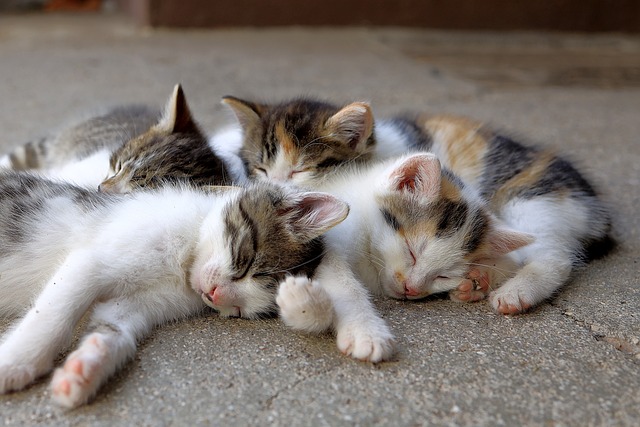
Worried about feeding your adorable kittens the wrong food?
Imagine the guilt of unknowingly endangering their health or hindering their growth.
It's time to put your concerns to rest.
In this guide, I Care for Cats will reveal the truth about whether kittens can eat cat food.🐱
Let's find out!
What Age Can Kittens Eat Adult Food
When it comes to kittens and their diet, you might be wondering when they can start eating adult food. Well, the short answer is that a gradual transition from kitten food to adult cat food should occur around their first birthday.
It's important not to rush this process because feeding kittens adult food before they're ready can actually be harmful.
Until they reach one year old, all kittens should stick to a complete and balanced kitten formula to ensure they get the necessary nutrients for healthy growth.
By about two months old, kittens should be fully weaned off their mother's milk and consuming only commercially prepared kitten food.
You'll know they're ready for solid food when they start showing interest in their mother's food, chewing on objects, and demonstrating good coordination.
Now, here's an important point:
Kittens have different nutritional needs than adult cats.
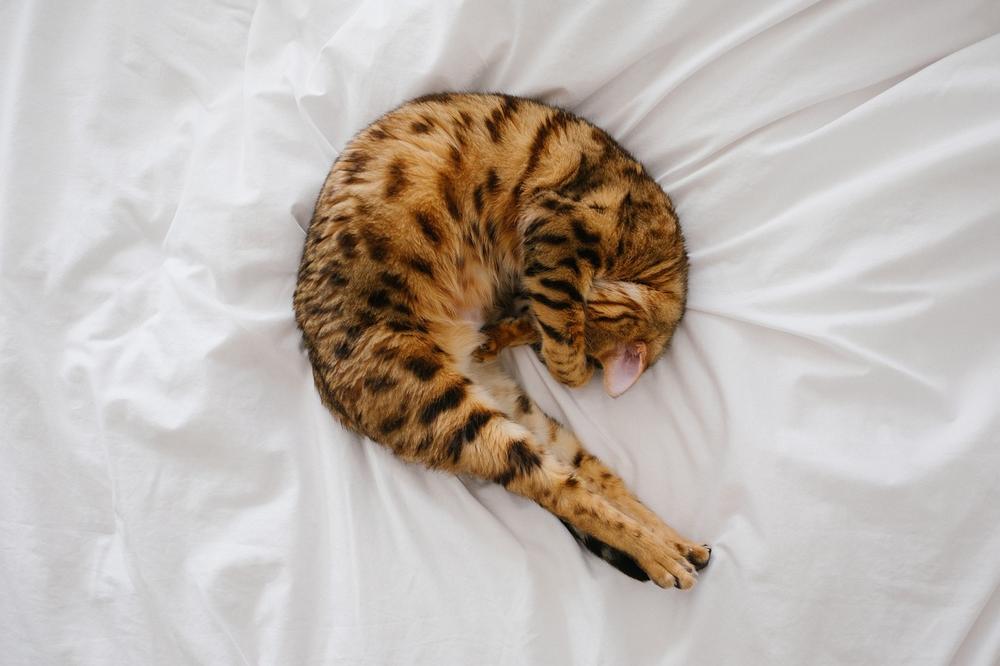
So, it's recommended to continue feeding them kitten food until they reach at least 90% of their adult weight.
The timing for this transition can vary depending on the breed of your kitten.
This gradual transition allows their digestive system to mature and adjust to the different nutrient composition of adult food.
This helps prevent upset stomachs and promotes optimal growth and development.
So, make sure that you be patient and wait until your little furball reaches the right age and weight before making the switch to adult cat food.
Your kitten will thank you for it!
And speaking of different nutritional needs, if you're curious about how the environment affects the dietary requirements of cats, you'll find some valuable insights in my article on Nutritional Needs for Indoor and Outdoor Cats.
Discover the factors that can impact their dietary needs based on their environment and make informed decisions for your feline friends.
Trust me, it's worth a read.
What Is the Difference Between Cat and Kitten Food
| Cat Food | Kitten Food |
|---|---|
| Lower Nutrients | Higher Nutrients for Growth and Development |
| Tailored to Adult Cats' Needs | Tailored to the Unique Needs of Growing Kittens |
| Variations in Flavors | Variations in Flavors |
| May Not Meet All Nutritional Needs for Kittens | Meets the Nutritional Needs for Growth and Development |
| Can Contribute to Health Issues in Kittens | Helps Prevent Health Issues in Kittens |
| May Not Be as Palatable for Kittens | Specifically Designed to Appeal to Kittens |
| May Not Be Easy to Chew or Digest for Kittens | Suited for Kittens' Delicate Digestive Systems |
| May not Provide Sufficient Energy for Kittens | Provides Adequate Energy for Growing Kittens |
Let me tell you, kitten food and cat food have some key differences. I mean, they may seem similar, but trust me, there's more to it.
Can I just say, kittens cannot thrive on cat food alone?
It's true.
You see, the thing is, kitten food is designed specifically for those little balls of fur.
It's like a customized meal plan made just for them. They need higher levels of essential nutrients, like protein, energy, calcium, and phosphorous.
I'm talking about supporting their rapid growth, muscle development, and immune system.
That's how crucial these nutrients are.
Kitten food has something extra, a little oomph if you will. It's packed with all the good stuff that kittens need to become healthy adults. You want them to grow up strong and vibrant, right?
Now, let's talk about why kitten food is different.
It's all about being easily digestible and using top-notch ingredients. Bear in mind, kittens have delicate tummies. They need balanced levels of calcium, phosphorous, proteins, and fatty acids that cater to their specific needs.
Can't cut corners when it comes to their well-being.
But hold on, let's not forget about adult cats.
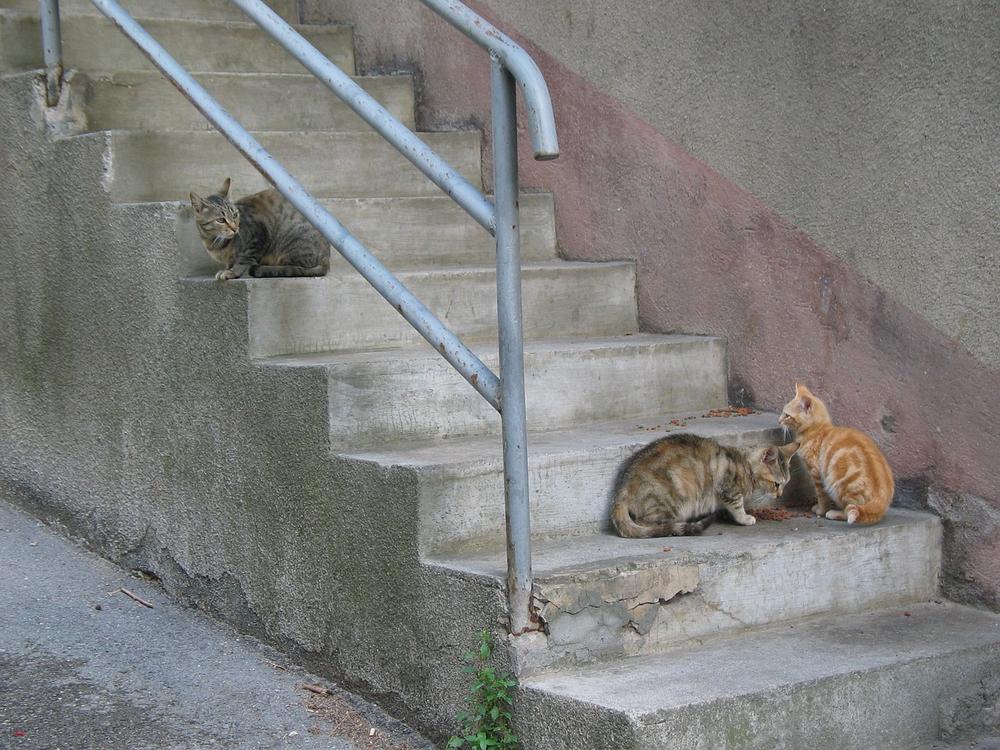
These guys have different preferences. They might go for stronger flavors and smells in their food.
Plus, their focus shifts from calories to maintaining their health. This means varying levels of carbs, vitamins, minerals, proteins, and fat content.
You know, keeping things balanced.
Okay, here's the thing. There are some myths floating around out there.
People might say, "Oh, kittens can eat cat food without any issues!" But listen, don't fall for it.
Those claims lack solid evidence.
Feeding kittens cat food exclusively could lead to nutrient deficiencies or even long-term health problems.
We don't want that for our tiny feline friends, do we?
So, when the time comes to introduce adult food to your little furball, do it gradually. Mix small amounts of cat food into their kitten food, and slowly increase the proportion as they grow older. This way, their digestive system has enough time to adjust.
And that's the scoop on the difference between cat and kitten food.
Trust me, starting them with the right food sets them up for a strong and healthy future.
Don't take chances with their nutrition.
Now that you know the difference between cat and kitten food, let me tell you what else you need to ensure your kittens' well-being:
What Else Do Young Kittens Need?
When it comes to young kittens, they need more than just food to thrive. Here's what you need to know:
- Make sure to spend time with your kitten and give them toys to play with. Social interaction is key for their growth.
- Introduce your kitten to different surfaces, textures, and objects. This will help their brain develop and improve cognitive skills.
- Between seven to 12 weeks old, weaning is an important process. Give them food that contains 30% protein and omega-3 fatty acids to support their brain and retinal function.
- Don't give too many treats or replace meals with them. This can lead to obesity. Control the portions and talk to a vet before adding any supplements to their diet.
- Watch out for weight loss or any signs of fading kitten syndrome. If your kitten vomits, has diarrhea, seems tired, has trouble breathing, or has pale gums, take them to the vet immediately.
- Avoid giving your kitten certain human foods like dairy products, coffee, chocolate, alcohol, and grapes. Also, keep them away from cleaning areas until scents fade and surfaces dry.
You can ensure your kitten's well-being and happiness by adhering to these guidelines.
You've got this! 😺
And now, let's dive into the critical topic of feeding young kittens.
You may be wondering, Is it safe for kittens to eat cat food?
Well, I'm here to satisfy your curiosity and provide you with all the information you need.
So, grab a snack (not for your kitten though!) and let's explore the world of kitten nutrition together!
Feeding a Mixture of Wet and Dry Foods
When you're feeding kittens, giving them a mix of wet and dry foods is the way to go.
This will give them a well-rounded diet that covers all the bases. 💡
With wet food, it helps keep your little buddy hydrated, especially if they aren't downing water like there's no tomorrow.
On the flip side, dry food actually does wonders for their dental health by making them chew and preventing gross tartar build-up.
If your tiny fluffball is having trouble adjusting to solids or turning their nose up at wet food, don't sweat it.
There are some tricks you can try to get them on board.
A smart move is mixing new food with familiar flavors and textures they already dig.
When it comes to introducing kittens to solid food, ease them into it bit by bit.
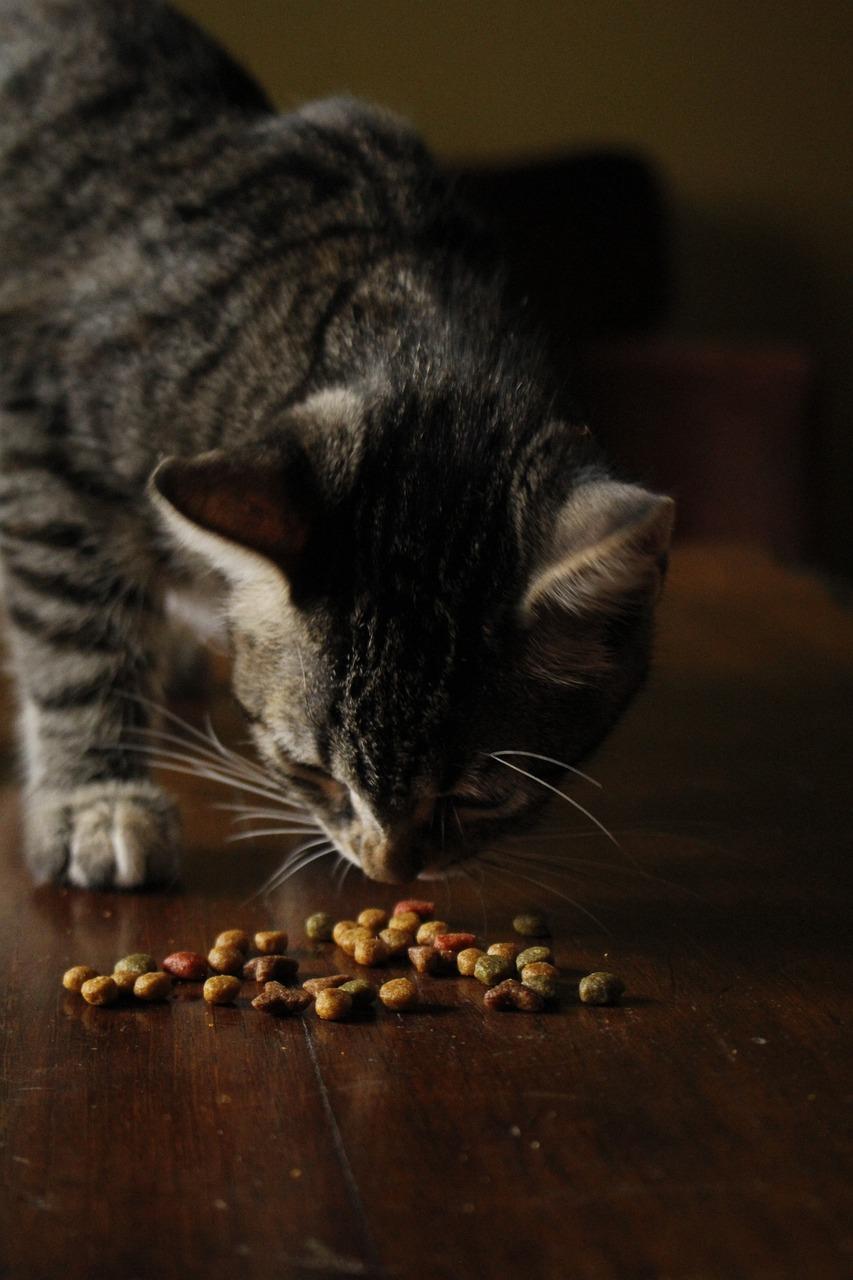
Start off with wet or kind-of-moist food during the weaning process.
It's also wise to feed your cats in different rooms and clean up once they're done eating.
Unlike dogs, kitties have a habit of nibbling instead of gobbling.
By offering both wet and dry chow, you're taking care of your feline friends' hydration and pearly whites.
Just make sure you choose pet food brands that meet the standards set by either AAFCO or FEDIAF.
And here's an important tip:
If you've got both a kitten and an adult cat in the house, watch out because the big guy might hog all the kitten food.
That can mean weight issues for the adult and a lack of essential nutrients for the growing baby.
So be mindful of that!
How to Switch From Kitten Food to Adult Cat Food
Transitioning your kitten from liquid to solid food requires a gradual reduction in milk or formula.
This process should take around 3-5 weeks, allowing their delicate digestive system to adjust and preventing any stomach problems.
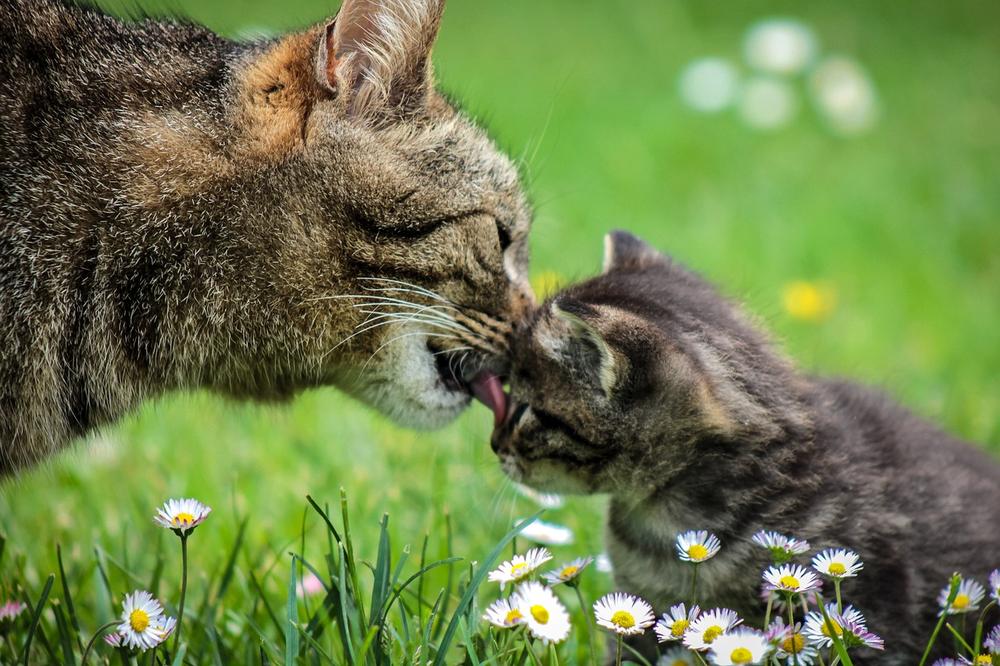
When introducing the new food, start with smaller portions if your kitten seems unsure.
In addition, it's best to switch them to adult cat food when they turn one year old.
To avoid any gastric discomfort during this transition, make sure to do it over a period of 7-10 days.
By following these steps, you'll ensure a smooth conversion from liquids to solids for your precious feline friend.
Choosing the Right Diet for Your Pet
- Feed kittens a complete and balanced kitten formula until 1 year old.
- Kittens should be fully weaned and eating commercially prepared kitten food by 2 months old.
- Kittens should not be given adult cat food before 1 year old.
- Signs that a kitten is ready for solid food include showing interest in their mother's food and good coordination.
- Wait until kittens start weaning, usually between weeks five and eight, before introducing solid food.
- Constantly feeding kittens adult cat food may hinder their growth and development.
- Feed kittens kitten food until they reach at least 90% of their adult weight before transitioning to adult cat food.
- Kitten food provides higher levels of protein, energy, calcium, and phosphorous for muscle development and a strong immune system.
- Adult cat food has stronger flavors and smells but requires lower calories and differs in nutrients.
- High-quality cat food prevents health issues like obesity, diabetes, and urinary tract problems.
- Young kittens require essential nutrients such as protein, fatty acids, vitamins, minerals, and limited carbohydrates.
- Treats should not replace meals to prevent obesity, and portion control is important.
- Veterinary guidance is necessary before adding supplements to kitten food.
- Immediate veterinary attention is required for certain symptoms in kittens.
- Avoid certain human foods and follow feeding guidelines to prevent obesity.
And that wraps up today's article.
If you wish to read more of my useful articles, I recommend you check out some of these: Can Cats Eat Pistachios, Can Cats Eat Oysters, Does Dry Cat Food Go Bad, Can Cats Eat Jelly, and Can Cats Eat Oreos
Talk soon,
-Sarah Davis